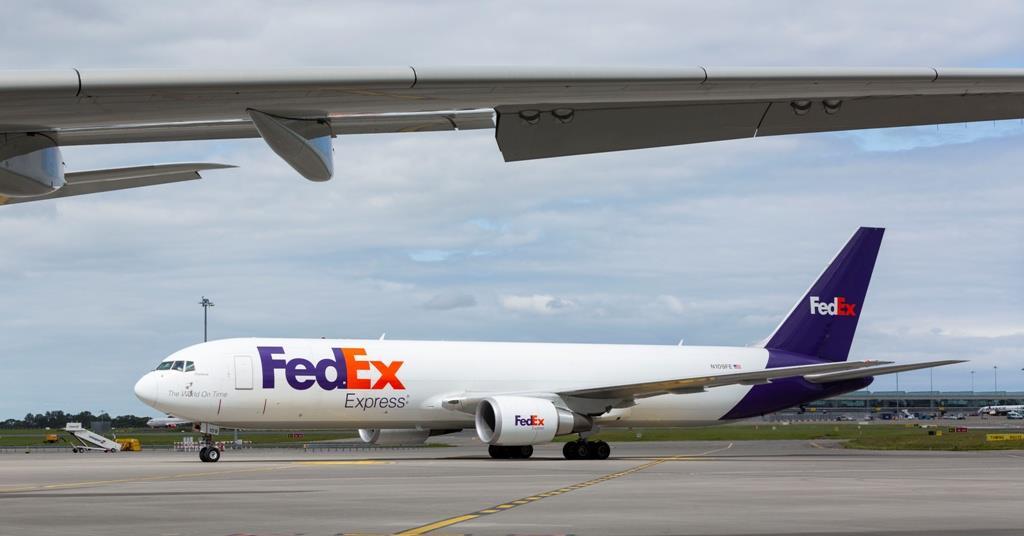
FedEx retires aircraft as it faces volatile demand environment
How did your country report this? Share your view in the comments.
Diverging Reports Breakdown
FedEx retires aircraft as it faces volatile demand environment
Revenues increase 0.4% year on year to $22.2bn, operating income improve by 14.7% to $1.8bn and net income increase 23.1% to £1.6bn. FedEx removed seven Airbus A300-600 aircraft, three MD-11 aircraft, and two Boeing 757-200 aircraft, plus eight related engines, from its fleet at a cost of $21m. Company said it also flexed its network to reflect demand developments as a result of the implementation of tariffs. Earlier this week, the company announced the passing of its founder, Fred Smith, at the age of 80. The company now operates 90 Boeing 7 57 aircraft, 34MD-11Fs and 58 A300 aircraft.
During the quarter, the express giant saw revenues increase 0.4% year on year to $22.2bn, operating income improve by 14.7% to $1.8bn and net income increase 23.1% to $1.6bn.
Profitability had improved on the back of its DRIVE structural cost reduction programme, the company said.
Speaking on an investor call, Raj Subramaniam, FedEx Corp president and chief executive officer, said the company had faced major headwinds during the quarter including “the expiration of our US postal service contract, two fewer operating days and volatility and uncertainty related to global trade policy”.
During the quarter, the company also removed seven Airbus A300-600 aircraft, three MD-11 aircraft, and two Boeing 757-200 aircraft, plus eight related engines, from its fleet at a cost of $21m.
“These retirements are aligned with the company’s fleet reduction and modernisation strategy as the company continues to improve its global network efficiency and better align air network capacity with anticipated demand,” FedEx said.
The company now operates 90 Boeing 757 aircraft, 34 MD-11Fs and 58 A300 aircraft.
In contrast, its 777 fleet has grown by two aircraft since last year to 59 and its 767s are up by seven aircraft to 145. It has plans to add a further seven 767s this year.
Earlier this year, the company announced the order of eight Boeing 777 freighters and said it planned to extend the retirement of its MD-11Fs from 2028 to 2032.
The company said that it also flexed its network to reflect demand developments as a result of the implementation of tariffs.
”For example, in the fourth quarter, we flexed our network to match the demand environment as trade flows shifted,” said Subramaniam.
”We reduced capacity on our Asia to Americas lane by more than 35% in the first week of May compared to April. This included reducing our third-party or white tail capacity by 50%. We then continue to adjust the capacity as needed as demand trends evolve throughout the month.”
He added that the company had added direct flights from Singapore to the US to better capture increased demand out of Southeast Asia.
Looking ahead, Subramaniam said: ”The global demand environment remains volatile. We’re staying close to our customers to help them plan and adapt as they navigate trade policy changes, and we are actively matching our capacity with demand as the environment evolves.”
Looking at divisional performance, its express division saw revenues increase by 1% to $19bn on the back of increased demand for US domestic and international economy services, while the weak industrial economy constrained demand for priority package and B2B services.
Freight saw revenues decrease by 4% to $2.3bn as continued weakness in the industrial economy pressured revenues, along with lower fuel surcharges, reduced weight per shipment, and fewer shipments, partially offset by base yield growth.
Last year’s fourth-quarter results included a noncash impairment charge of $157m from the decision to permanently retire 22 Boeing 757-200 aircraft and an income tax expense of $54m as a result of the merger of its ground and service businesses into the express division.
Earlier this week, the company announced the passing of its founder, Fred Smith, at the age of 80.
